Corrado Angelini
Department Neurosciences University of Padova,Italy

Journal of Neurological Sciences and Research (H-Index: 1) (ISSN: 3048-5797) (Impact factor: 1.8) is a peer-reviewed and an open-access journal presenting the publication of original articles related to neurology and neuroscience. Neurological science is the branch of nervous system and it deals with the anatomy, biochemistry, molecular biology, physiology, pharmacology, psychology, and medicine of neurons and neural circuits. The journal welcomes contributions in each the basic and clinical aspects of the neurosciences.
Journal of Neurological Sciences and Research goals to promote research communications and offer a forum for researchers, doctors, physicians and healthcare specialists to find most recent advances in all regions of Neurology and Neurological Sciences. It publishes original research articles, reviews, mini reviews, case reports and short communication in the field and provides online access without any restrictions or subscriptions to the researchers worldwide.
Topics taken into considered could be from neurology related fields that are of interest to practicing physicians around the world. Examples consist of neuromuscular diseases, demyelination, atrophies, dementia, neoplasms, infections, epilepsies, disturbances of consciousness, stroke and cerebral circulation, growth and development, plasticity and intermediary metabolism. The following categories are the main areas of interest: neuroanatomy, neurochemistry, neuroendocrinology, neuroepidemiology, neurogenetics, neuroimmunology, neuroophthalmology, neuropathology, neuropharmacology, neurophysiology, neuropsychology, neuroradiology, neurosurgery, neurooncology, neurotoxicology, restorative neurology, and tropical neurology.
Submit manuscript as an e-mail attachment to the Editorial Office at neurologicalresearch@genesispub.org or neurologicalresearch@genepub.org
Indexing and Abstracting:
© 2023 genesis pub. CC BY-NC-ND 4.0 DEED | Open Access

Department Neurosciences University of Padova,Italy

Director of Rehabilitation, Ivy Rehabilitation Networks Outpatient Orthopedic Center Highland Park, Illinois, USA

Fluminense Federal University, Medical Sciences Center, Rio de Janeiro, Brazil

Clinical Director, Thuasne, United Kingdom

Departament of Neurology, University Hospital Gustavo Aldereguía Lima, Cuba

King Abdulaziz Medical City, National Guard Health Affairs, Riyadh, Saudi Arabia

Institute of Neurological Sciences (ICNE), Sao Paulo Praca Amadeu Amaral, Sao Paulo, Brazil

Department of Molecular Virology, Graduate School of Medicine, Chiba University, Japan

Professor of Neuropharmacology, University of Southern California, USA

Brigham and Women’s hospital, Harvard Stem Cell Institute, Boston, Massachusetts, USA

Neurosurgeon, Head of Department, HUGO–Hospital Estadual de Urgencias de Goiania, Brazil

Forensic graphologist, Counselor, Mental Coach, Institute of Psychiatry and Psychology, Department of Geriatrics, Neuroscience and Orthopedics, IRCCS A, Gemelli University Polyclinic Foundation, Sacred Heart Catholic University, Rome, Italy

Department of Neurology and Psychiatry, El-Abbassia Mental Hospital, Cairo, Egypt

Department of Neurosurgery, University of Florida, Gainesville, USA

Emeritus Professor in the School of Medicine Democritus, University of Thrace, Alexandroupolis, Greece.

Medical Acupuncture and Pain Management Clinic, Brazil

Associate Professor, Chief Research Unit, Consultant Neurologist 95123, Italy

BME Research Lab, Sosei Ltd., Japan

Faculty Member in California Northstate University, CNSU, USA; University Professor in Losrios Community College District, USA

Faculty Member in California Northstate University, CNSU, USA; University Professor in Losrios Community College District, USA

Clinical Fellow, Department of Oral & Maxillofacial Surgery, Division of Oncology, University, Massachusetts General Hospital, Boston, United States of America

Neurologist, Kurnool Heart & Multispeciality Hospital, India

Noushin Mehrbod, Isfahan University of Medical Science, IUMS

Associate consultant neurology, Pacific Medical College, Udaipur

School of Pharmacy, Liverpool John Moore University, Byrom Street, Liverpool L3 3AF, UK.

Department Neurosciences University of Padova,Italy

Fellow for skull base and neurovascular surgery Royal Adelaide Hospital, Adelaide, Australia
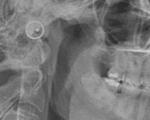
Introduction: Temporomandibular disease ..
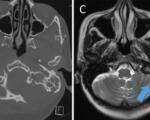
Cerebrospinal fluid (CSF) rhinorrhoea ..
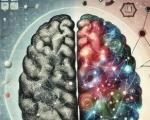
Artificial Intelligence (AI) ..
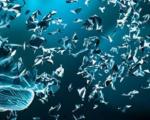
Neurodegenerative diseases (ND) are a ..
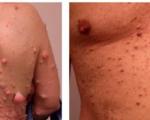
Neurofibromatosis type 1 is an ..

Meralgia paresthetica (MP) is a ..
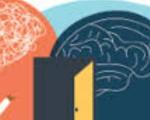
The rise in global statistics of mental ..

Background: Nocardia species, ..
Genesis Scientific Publication is a self-governed as self-financed organization which aims not to receive any kind of external support from institutions/organization. Hence, the processing charges received from the authors and some academic/corporate sponsors are the sole means of the operation of manuscripts. And for maintenance, the fee is being received namely “Handling Fee”.
Thus, our group is like an open book which can be accessible by anyone who is passionate about journals with any chargeable fee i.e. it’s absolutely free for readers. However, authors are supposed to pay the handling fee which is required for processing of articles only and no other fee will be charged. And there is a provision made for authors i.e. the payment will only be done after the publication of the manuscript. It provides immediate open access to its content on the principle that making research freely available to the public supports a greater global exchange of knowledge and the charges cover the costs of turning a manuscript into a finished article, and also consists of promotion and distribution fee. Thus, this fee varies accordingly with the extent or type of colored effects, complex equations, extensive editing and extra elongation of no. of pages of the article etc.
Moreover, no one can change one's mind or authors as it keeps on changing so authors are responsible for paying 70% of the manuscript handling fee once the article is submitted and accepted in the journal.
The standard processing fee of journal for all type of articles is mentioned below:
|
MANUSCRIPT TYPE |
ARTICLE PROCESSING CHARGES |
||
|
USD |
EURO |
GBP |
|
|
ALL ARTICLE TYPES |
800 |
741 |
637 |
Genesis Journals is committed to maintain the best level of sincerity within the content published in the journal.
Genesis Journals following International Committee of Medical Journal Editors principles on the way to affect acts of misconduct thereby committing to research allegations of misconduct to make sure the purity of research.
The research being reported in articles must be conducted in an ethical manner and must suits all relevant legislation. Authors must refrain from engaging in scientific misconduct.
Authors should present their results honestly and clearly without any fabrication, falsification, or any kind of inappropriate data manipulation. The authors should strive to explain their methods clearly and unambiguously must guarantee the originality of their material and their findings are often confirmed by others.
Authors should provide appropriate acknowledgement and authorship. All authors must have significantly contributed to the research. Authors must refrain from deliberately misrepresenting a scientist’s relationship with published work. Contributors who have made fewer substantial contributions to the research or to the publication are often acknowledged but shouldn’t be identified as authors.
Authors must tell the journal once they have an immediate or indirect conflict of interest with editors or members of the editorial board or International scientific committee.
Genesis Journals employ a double-blind review process. All contributions are going to be initially assessed by the editor. The editor is solely and independently liable for selecting, processing, and deciding which of the articles submitted to the journal meet the editorial goals and will thus be published. Each paper selected is shipped to two independent peer reviewers who are experts in their field and ready to assess the exact qualities of the work. The editor is liable for the final decision regarding whether the paper is accepted or rejected.
The decision to publish a paper will always be measured in accordance with its importance to researchers, practitioners, and potential readers. Editors should make unbiased and independent decision.
The editor’s action and decision are constrained by ethical and legal requirements like its own governing infringement of copyright and plagiarism.
Editors who make final decisions about manuscripts should withdraw from editorial decisions if they need conflicts of interest or relationships that pose potential problems concerning articles into account. The responsibility of the ultimate decision regarding publication are going to be attributed to an editor who doesn’t have any conflicts of interest.
The members of the editorial board ,chief editor, scientific committee, and reviewers shall withdraw in any case of conflict of interest concerning an author or authors, or the content of a manuscript to be evaluated.
The Journal will avoid all conflict of interest between authors, reviewers, and members of the editorial board and International scientific committee.
Each article submitted is the responsibility of one member of the editorial board or of the international scientific committee, who undertakes to have it evaluated by two peers who are experts in the field and who evaluate it anonymously.
Reviewed articles are treated confidentially by journal editorial board members and reviewers
In no case shall a journal and members of the editorial board encourage misconduct of any kind.
Members of the Journal editorial board shall attempt to prevent misconduct by informing authors and reviewers about the moral conduct required of them. Members of the editorial board, scientific committee, and reviewers are asked to remember of all kinds of misconduct to spot papers where research misconduct of any kind has or seems to possess occurred and affect the allegations accordingly.
Where appropriate, journal editors encourage authors to share the info that supports research publications. Editors encourage authors to state the supply of their data during a data statement attached to the submitted article. With the info statement, authors are often transparent about the info they utilized in the article.
All reviewers must know and keep in mind the editorial policy and publication ethics and malpractice statement.
Genesis Journals requires potential reviewers to have scientific expertise or significant work experience in a relevant field. They must have acquired recognized expertise by their peers and recently conducted research work. Potential reviewers should provide personal and professional information which is accurate, and which gives a fair representation of their expertise.
All reviewers must likewise withdraw if they feel their evaluation of the material will not be objective or they know they are unqualified to evaluate a manuscript, or if they understand themselves to be in a conflict of interest.
Reviewed articles are treated confidentially by reviewers and members of the editorial board and international scientific committee.
Reviewers should point out relevant published work which has not yet been cited in the reviewed material. Reviewers are asked to identify papers where research misconduct has or seems to have occurred and inform the editorial board, which will deal with each case accordingly.
The copyright on the original content and intellectual property shall remain with the authors. The authors grant, in exchange for publication in the Journal exclusive licensing of first publication, giving the Journal the right to produce and disseminate the contributions, whether collectively with other articles or individually, and in all media, forms known or to come.
The authors shall guarantee the originality of their material and shall not publish any text that would appear to contradict. Plagiarism and false or intentionally misleading declarations constitute behaviour that is at odds with the ethics of scientific publication.
No significant part of the article shall have been previously published either as an article or as a chapter or be under consideration for publication elsewhere.
If the authors intend to reproduce their article in other publications or for any other purpose and by any means, they must obtain the written authorization of the editorial board.
Articles are published in open access. There are no associated subscriptions or pay-per-view fees. All material is made available under the terms of the Creative Commons Attribution-Noncommercial-No Derivatives 4.0 International license (CC BY-NC-ND 4.0).
Journal’s content is archived in several copies by open edition, a publisher of online, free-access books and journals longer published, open edition maintains free access and will continue to make all archives available online.
The names of authors, reviewers, and collaborators along with the names of their organizations and institutional affiliations, which the Journal may record during its operations, shall remain confidential and shall not be used for any commercial or public ends beyond the signature of the articles published. However, this information may sometimes be required by government grant-giving bodies. The secrecy of the peer review selection shall be maintained when transmitting this information. A list of the names of authors, reviewers, and collaborators and the names of their organizations and institutional affiliations shall be sent with no explicit links between those named.
Genesis Journals may use these lists for its own purposes of request articles, collaboration, or other contributions, notably through occasional e-mails.
The authors retain the copyright of the content and grant the magazine the right to be the first to publish the article. This publication will be made under license, which allows others to share and reproduce the contents as long as the original authorship in the magazine is acknowledged and quoted.
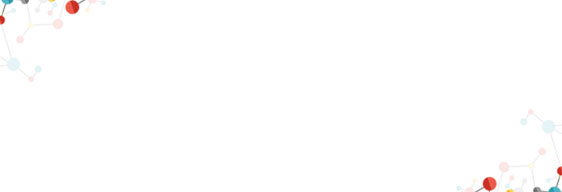

Introduction: Temporomandibular disease (TMD) etiology is multifactorial and is related to many ..

Cerebrospinal fluid (CSF) rhinorrhoea refers to the loss of CSF through the nasal cavity. The ..

Artificial Intelligence (AI) technologies have been evolving for over half a century, with the ..
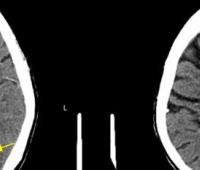
Background: Nocardia species, particularly Nocardia farcinica, are rare causative ..

The rise in global statistics of mental health disorders has highlighted significant shortcomings ..
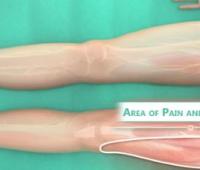
Meralgia paresthetica (MP) is a condition characterized by damage to the lateral femoral cutaneous ..

Neurofibromatosis type 1 is an autosomal dominant genetic syndrome associated with numerous ..

Neurodegenerative diseases (ND) are a significant global health challenge, characterized by ..
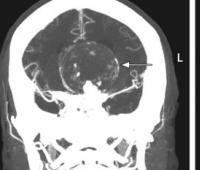
Introduction A large spherical intracranial mass can sometimes be misdiagnosed due to the lack ..

The etiology of this condition is a helminth parasite Taenia solium, which has a cycle eventually ..
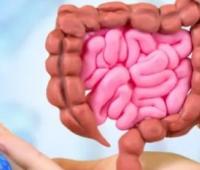
In recent years, neurological health has emerged as a leading global concern. Scientific studies ..
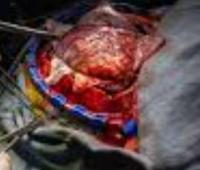
The use of visual evoked potentials (VEP) for neuromonitoring during occipital brain surgery has ..
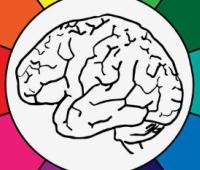
The study's abstract highlights the numerous clinical factors that contribute to a five-month- ..
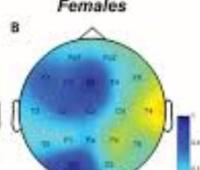
Sleep spindles are oscillating potentials generated in the thalamus. They are linked to memory ..
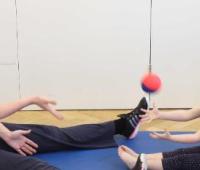
Prolonged immobility following acute meningitis often contributes to diminished strength, ..
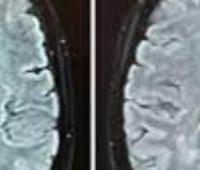
Dengue, a severe and fatal viral disease, has become a global crisis. The notorious causative agent ..
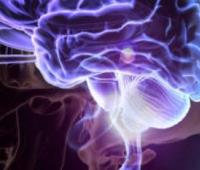
Intraoperative neuromonitoring (IONM) is a vital technique used to ensure the safety and ..
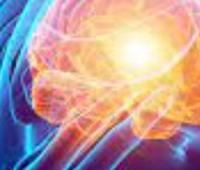
WHO states that, “Hypertension, also known as high or raised blood pressure, is a condition ..
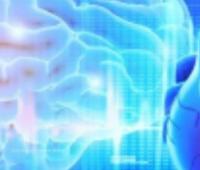
Diplopia, or double vision, is a potential complication following cerebellopontine angle (CPA) ..

Aim: This study aimed to investigate the potential association between varicose veins and daytime ..
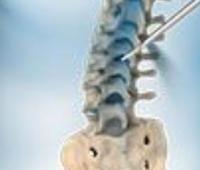
Intraoperative neuromonitoring (IONM) is a widely used technique to minimize neurological ..
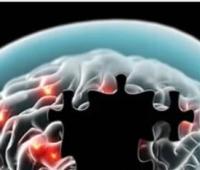
The scarcity of awareness about Alzheimer among the Indian population, despite its increased ..
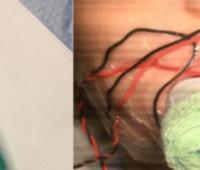
This abstract describes a cohort study that evaluates the impact of intraoperative neuromonitoring ..
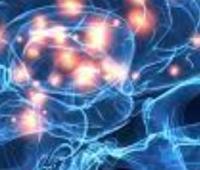
This classification research provides an overview of the current research on Intraoperative ..
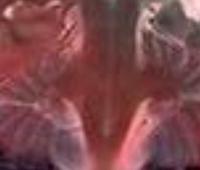
The jurisprudence of cerebral palsy litigation has a dark history based on grave misdirection from ..
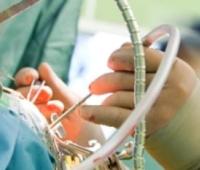
Background: High anxiety sensitivity is related to obsession and compulsion in people with ..
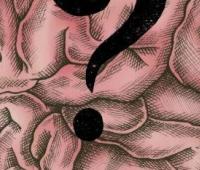
A concussion is a brief loss of consciousness and sometimes memory after a brain injury that has ..
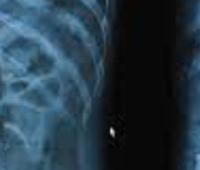
Traumatic spinal cord injuries can have devastating outcomes for patients. In this focused review, ..

Grosso modo, the quality of municipal services depends on an agreement between users and ..

Introduction: The World Health Organization estimations show 235 million people who currently ..

Our aim in this study is to determine the muscle’s destruction in the functional area of the ..

Background and Aim: The pandemic has shown ill-effects on the physical mental health of the general ..

Unwanted thoughts along with repetitive actions characterize obsessive-compulsive disorder (OCD). ..

Guillain-Barre syndrome (GBS) is an inflammatory demyelinating polyneuropathy. In typical cases, ..

Statement of the Problem: Dementia is a term for conditions characterized by decline in memory, ..

Background & Purpose: Recovery after severe traumatic brain injury (TBI) often involves ..

Case Information: Interdisciplinary rehabilitation gathered for a 26-year-old male recovering from ..

Abstract Objective: The literature on psychiatric disorders associated with the coronavirus ..
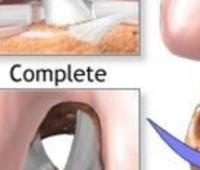
Abstract Introduction: Sports participation often lead to a wide range of injuries like ..
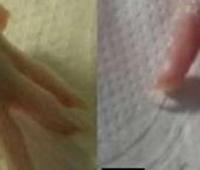
Background: Females have higher inflammatory pain representation. However, sex differences ..